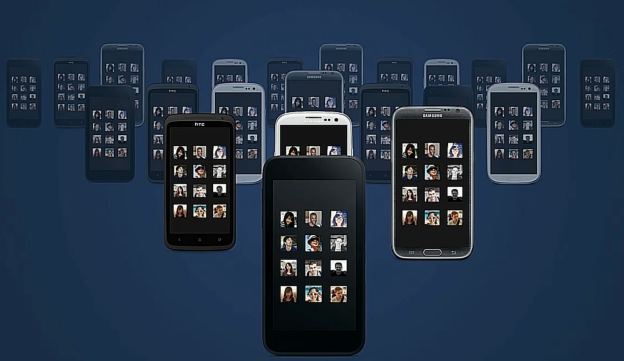
Mobile analyst Ben Evans has noted a milestone of 500,000 Facebook Home downloads since the service launched on Google Play on April 12. Though specific numbers are not available, the online market’s install graph confirms a tally of up to 1 million downloads.
While upwards of a million downloads in 10 days may seem impressive, other applications like Instagram have gotten over a million confirmed downloads in their first 24 hours on the Google Play Store. That said, Facebook Home is only available on certain devices, including the HTC One X, HTC One X+, HTC First, the Samsung Galaxy S3, and the Samsung Galaxy Note 2. Even something as “Paltry” as half a million downloads in 10 days seems impressive when the app works on less than a dozen products.
In lieu of the rumored “Facebook phone,” Home reimagines the Android as an interactive Facebook feed. It lets users catch up on through their news feed, read their notifications, and get other Facebook content right from their homescreen.
But things might be changing for Facebook. Analytics from Salorix, published two days before the launch of Facebook Home, show a lot of concern over privacy issues. And even though the app’s been downloaded close to a million times, it’s sitting on a user rating of 2.2 stars. A lot of users have noted that they’ve already uninstalled it, and the overall reception of Home is fairly grim.
How often do you use Facebook? How about on your phone or tablet? The network has certainly shown greater longevity than most others (as opposed to you, MySpace), but concern over privacy issues is nothing new. We all probably remember the first time we took a second look at what some innocuous-looking app wanted us to sign off on. People justifiably tend to freak out a little over apps that want more info than a real estate broker, or the legal right to post as a user. Home seems like it’s trying to make our daily Facebook activity even more indifferent, and even more public.
With Facebook rumored to be entering into the hardware market before too long, one has to wonder what privacy settings, or lack thereof, the Facebook phone may implement. Services as simple as Spotify can be a privacy hassle, publicizing individual songs as they’re being listened to. Is that where we’re headed in the hardware market?

